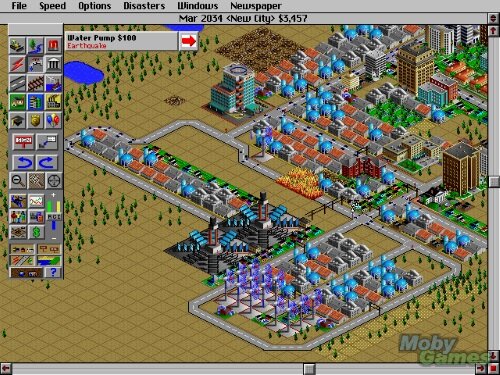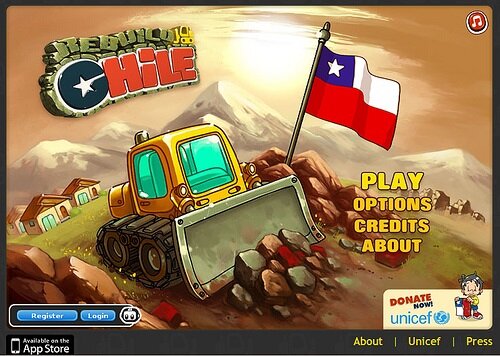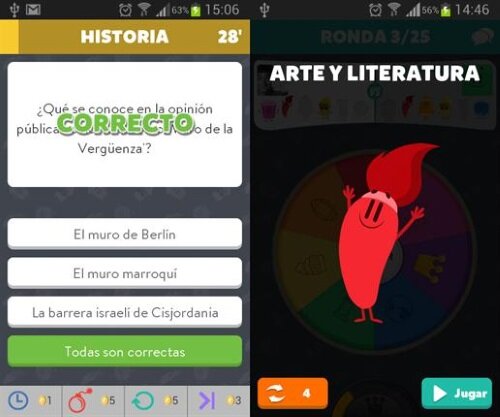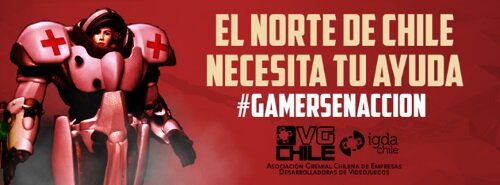“Dad, why do earthquakes happen?”
“Dad, why do earthquakes happen?”
Diego, my older son, asked me about earthquakes some years ago. As every Chilean kid, he has been exposed since very little to the fact that earthquakes and other ravages of nature are part of Chile’s culture and idiosyncrasy.
We Chileans are used to natural catastrophes occurring every once in a while, and we know that after getting the hit, we just need to reorganize ourselves and help each other on the reconstruction. The whole country gathers in solidarity crusades and several institutions and organizations work on rebuilding the damaged areas and helping the affected people.
We are not the only ones, of course. Many other countries constantly face natural phenomena. The history of mankind has always been linked to different catastrophes that have sometimes marked whole generations.
As parents, we know that we need to teach respect for natural phenomena to our children. We need to teach them what do they mean, why do they occur, the basic safety measures and how to act in case of an earthquake, a fire, etc. Schools also instruct them about that and they also learn the emergency and evacuation plans by practicing them.
Being prepared is what really matters.
My city is falling down!
As it was expected, the natural disasters topic is also present in videogames.
SimCity, one of the games that I enjoyed the most in the late 90s, has the natural catastrophes as one of its key features. For those who do not know it, the game is about building a city and exercising as a kind of major, defining what to build, when and how.
The main challenge is keeping a balance between commercial, residential and industrial areas, along with being able to build, repair and expand the city with a limited amount of resources, which you also need to produce. The player needs to worry about keeping citizens happy by fulfilling their needs such as employment, health and education.

Of course, just like in real life, all kinds of catastrophes happen, increasing the game challenge. Earthquakes, flooding and alluviums are mixed with riots and angry aliens (well, it’s a videogame, what would you expect!). The player builds his city knowing that bad things can happen any time and, when they occur, he has to do his best to recover and rebuild before the next catastrophe happens.
By the way, I’m not stating that SimCity is an educational game designed to teach natural phenomena and their effect on urban population.
But, I do think that it’s pretty interesting that we, human beings, actually enjoy playing with these kind of simulations, like SimCity, and that while we are playing them, we can actually get some basic notions on how civilizations deal with catastrophes.
And there is no doubt that we enjoy it: when the newest SimCity was launched just a few years ago, it was so successful that the online servers collapsed for several days, given the huge amount of people that bought it and try to play it.
A game developer does not know how to rebuild houses…
When the last huge earthquake occurred in Chile, on February 27th 2010, there was a group of game developers that had been gathering in different coffees and restaurants in Santiago.
We were trying to identify common challenges and needs, and then get organized and work together in solutions that could help all of us. Those were the bases of what would formally become the Chilean Videogames Association, or VG Chile, a couple of months later.
In a meeting just a few days after the earthquake, the developers talked about their willing of helping the affected people in any concrete way. Most of them felt pretty useless about their own talents and professions: obviously you can’t build houses, heal people or feed children with videogames. A lot of people in Chile needed urgent help and every day new campaigns appeared recruiting young people to travel to the affected areas and to help on the reconstruction process.
I was not present in that particular meeting, but the legend says that the developers started brainstorming and drawing ideas on a napkin. They were trying to figure out if there was any reasonable answer to the following questions:
How can we, a small group of videogame developers, help our compatriots? Can we actually do something with our videogames?
Another huge earthquake had devastated Haiti some weeks before and a lot of fundraising campaigns were created to help the country. There was one in particular that caught our attention: it was a videogame that started selling some special ingame items in order to raise money to help people in Haiti.
Inspired by that idea, the group of Chilean developers thought we could do the same and the concept of “Rebuild Chile Game” was born: a game that would try to sensitize people about the post-earthquake reconstruction process and, even better, will also raise funds for it.
We had a lot of design and production meetings, we created a couple of teams, we defined ambitious goals and we started to work hard. While one group was developing the main web version of the game, two other smaller teams were working on two additional versions: one for iPhone/iPad devices and one for Xbox 360 (this one never got published).

It was a very busy month: all of us had to work on the project in our free time, during nights and weekends. But it was totally worth it, because we felt that we were doing something useful and that would make a difference. We had an ambitious goal and we were very determined on achieving it.
Two months later, the web version was ready and we launched the game on several web sites.
People liked the game and we got a lot of press coverage. We were very happy and excited about the fundraising dreaming that it would go through the roof.
However, inexperience played us a trick. Even though the game was played by lots of people (I don’t have the figures, but it was a big number for us), only very few actually used the platform we integrated to allow players to donate funds. After several weeks of having the game live, the amount of money was paltry, much lower than our goals and expectations, and certainly much lower than what the Haiti campaign had got.
It was a blow to the team. The initial enthusiasm quickly became disappointment, lack of motivation, and finally we abandoned the project, leaving a version that was never published and many ideas of how to improve and expand the game that were never materialized.
“Rebuild Chile Game” can still be played on some websites such as New Grounds (link to the game).
It’s a nice game about rebuilding, with very simple game mechanics and an intro cinematic that still makes me emotional when I watch it. I guess it’s due to the deep involvement that we had on the project and how much it meant for us.
We really thought we were going to make a difference.
Learning while Playing
I am a strong believer on videogames as one of the most effective ways of teaching. I am not the only one nor the first one to think that way, of course. There are lots of studies that have already shown that even animals use games for learning things.
Videogames share the same ability of being effective for learning stuff than non-electronic games, but with the added potential that videogames can bring players to alternate realities, amazing worlds and experiences that are only possible through digital media.
Because of that, they can potentially transmit a much broader and more complete set of contents, and in a much more intense and effective way. Hence, the challenge is using that potential and taking the most of it.
There are a lot of videogames that are intended to teach the player any kind of contents. The most obvious cases are the ones in which the player has to, literally, solve additions, subtractions or choose the right word to complete a sentence. Even though they could be fun, they quickly get monotonous because, at the end, they are just a super long quiz about a specific topic in which questions are thrown to the player one after the other.

Fortunately, this genre has positively evolved. For instance, I recently started playing “Trivia Crack” and “Word Crack” thanks to my beloved family.
Both games are pretty straightforward on their purpose: entertain the players by challenging them about their knowledge on specific contents. The first is basically a trivia game; the second one is a word soup. The cool thing is that the developers added some features that make the experience more complex and defying, such as power-ups, the ability to challenge your friends, etc.
As I enjoy competitive games a lot, I have had a great time sending challenges to my brothers and even winning them sometimes. Of course, I don’t always win, especially if I play against Mariana, my wife, who seems to be a living encyclopedia. But still, the fun part is the challenge and to learn while we are playing.
And the best thing is that when my son Diego discovered that we were playing, he also wanted to participate. It’s harder for him because many questions are about some history, science or culture topics that he has not even studied at school. But I really like the fact that he is so motivated to play and enjoy the game with his family that he continues to challenge us and he is actually getting better because he is really learning stuff.
While playing, Diego is learning a bit of science, art, history and geography. Awesome.
Gamers in Action again!
Some months ago I wrote the original version of this article in Spanish. Just a few days before I posted it, nature shown its power again. For several days, a very heavy rain fell on a region that is not prepared at all to receive such amount of water: the northern Chile.
Mostly a dry area with scattered cities surrounded by vast deserts, the rain caused flooding and alluviums. Houses were destroyed, roads were broken and a lot of people got isolated and in complete despair.
As every time this happens, the whole country stood by and several campaigns were started to help the affected communities. Even neighbor countries like Bolivia put aside the eternal conflicts that we have and gave an example of solidarity sending a lot of help convoys.

The local videogame developers community also organized a campaign and lead by VG Chile, the Chilean Videogame Developers Association, started to help on the recollection and delivery of material help (campaign info in their Facebook fan page)
I’ve learn through my own experience that the best way to teach is by example. Actually, my first steps on learning how to make videogames were copying and altering others work. And the same can be applied to any sort of things, from technical skills to values and behaviors.
As a parent, I think that if I get involved in campaigns such as these ones, I won’t be just helping affected people. I will also be teaching my kids the importance of solidarity, by giving them an example.
So I’d like to invite you, especially if you have kids, to join and support this kind of campaigns, wherever they are. You won’t be just supporting a good cause and helping a lot of people. You will also be building, through your children, a better world for their own future.
Juan Pablo makes videogames since he was 8 and he is a father since 2004. Today, he has three children and he has worked in more than 20 videogames. He got interested on how paternity and the videogame industry are related and he decided to write about it, founding "Papa Game Dev".
Leave a Comment
Your email address will not be published. Required fields are marked *

